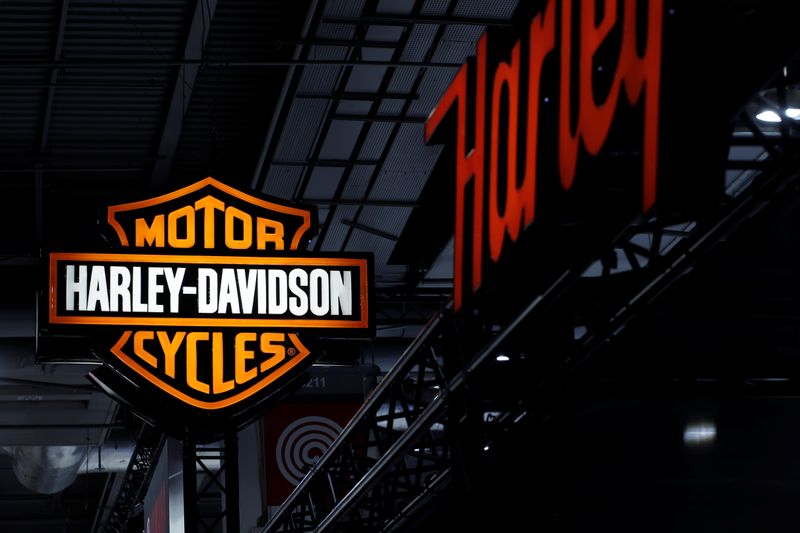This post was originally published on this site
https://i-invdn-com.akamaized.net/trkd-images/LYNXNPEG6R0RF_L.jpg
CHICAGO (Reuters) – Harley-Davidson Inc (N:HOG) on Tuesday reported an unexpected quarterly loss due to disruptions caused by the coronavirus pandemic, sending its shares sliding 4% in pre-market trade.
It also unveiled a strategy that includes streamlining product portfolio and shifting resources and investments in markets with growth potential as part of new Chief Executive Jochen Zeitz’s strategy to turn around the 117-year-old motorcycle company that has been grappling with an aging customer base.
The Milwaukee-based company reported a loss of 60 cents per share for the quarter through June, compared with a profit of $1.23 per share a year ago. Analysts had on average expected the profit to come in at 4 cents per share, according to IBES data from Refinitiv.
Motorcycles and related products revenue dived 53% year-on-year to $669 million, hurt by the temporary suspension of production during the quarter due to lockdowns to curb the spread of the virus.
The company’s shares were trading down 4.9% at $27.85 in pre-market hours.
Harley has been struggling for years to woo younger riders in the United States, its biggest market, to reduce reliance on baby boomers, who drove sales for decades. The pandemic has exacerbated its challenges.
In the latest quarter, retail sales in the United States plunged 27% year-on-year, the steepest fall in at least six years.
In response to weak demand, the company has tightened supplies and cut production. This reduced global dealer inventory by 32% during the quarter and drove up prices for pre-owned bikes which used to be a drag on new bike sales.
Zeitz, who took the reins in February, plans to focus on 50 markets in North America, Europe and parts of Asia Pacific, and shrink planned motorcycle models by about 30%.
His strategy will eliminate 700 positions, but is estimated to result in annual savings of about $100 million.

